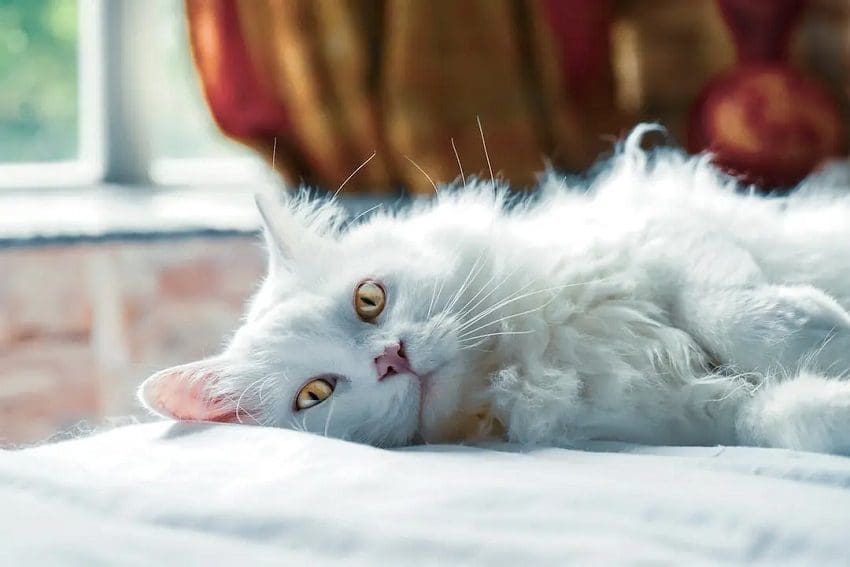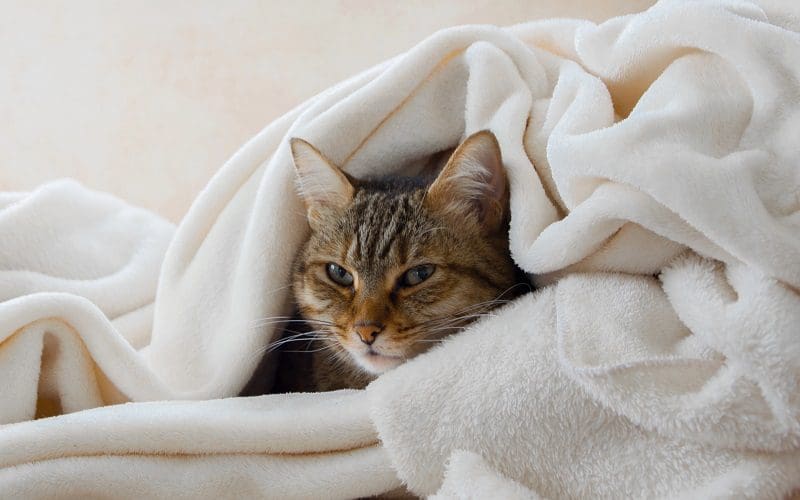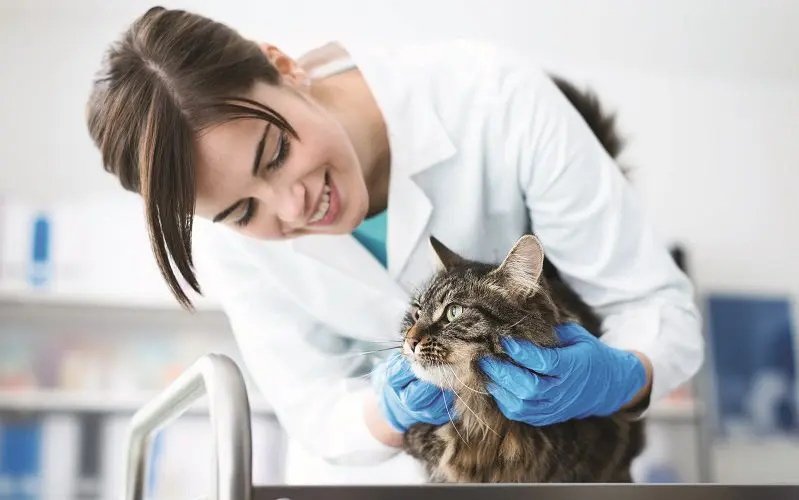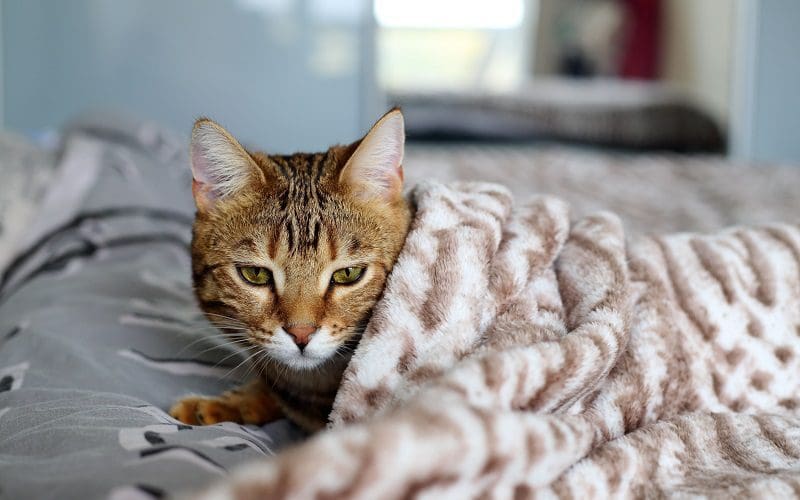Last Updated: 7 months ago
Can cats get colds similar to humans?
Cats are prone to catching colds, just like humans. While it can be worrying for pet owners, there are several options for how to treat cat colds and help your furry friend feel better.
Knowing the causes of cat colds, the symptoms to look out for, and how to treat cat colds at home are all important pieces of information that every cat owner should have.
Understanding when it’s time to see the vet for a cat’s cold is key to ensuring your pet’s health and well-being.
By taking preventative measures, you can help reduce the chances of your cat catching a cold in the future.
Treating cat colds doesn’t have to be difficult or scary; with the right knowledge and care, you can help your feline friend feel better in no time!
Symptoms of Cat Colds

As a cat owner, it’s important to be aware of the signs and symptoms of cat colds. Just like humans, cats can get sick with colds that are caused by viruses or bacteria.
The most common symptoms of a cat’s cold include:
- Runny nose: Your kitty may have an excess amount of mucus coming from its nose. This could range from clear to yellowish in color.
- Sneezing – If your kitty is sneezing more than usual, it may have caught a cold virus or other infection. It’s best to keep an eye on them for any changes in behavior as well as any further signs of illness.
- Watery eyes: Cat owners should watch out for watery eyes, which can indicate the presence of a viral infection such as feline herpesvirus-1 (FHV-1). This virus causes inflammation and irritation around the eyes and can cause discharge from one or both eyes if left untreated.
- Fever: A fever is usually present when your kitty has contracted a bacterial infection such as Bordetella bronchiseptica (kennel cough) or Mycoplasma haemofelis (feline infectious anemia). Fevers over 103°F should be monitored closely, and you should contact your vet immediately if this occurs in order to start treatment right away before complications arise.
If you notice any combination of these symptoms in your cat, take them to the vet right away so they can receive a proper diagnosis and treatment plan.
How to Treat Cat Colds at Home

Cats are such wonderful and beloved pets, but unfortunately, they can get sick just like any other animal. Colds are a common ailment in cats caused by viruses or bacteria.
While it’s always best to take your cat to the vet if you suspect they have a cold, there are some things you can do at home to help them feel better.
The first step in treating a cat cold is to make sure your kitty has plenty of fresh water and food available so it can fight off infection.
You may also want to make some chicken broth or canned tuna (without the fishy juice) for additional hydration and nutrients.
If possible, try placing a humidifier in the room where your cat spends most of its time. This will help ease congestion and breathing difficulties associated with a cold.
It’s important that you keep an eye on your pet for any other symptoms that might develop while they’re suffering from a cold.
If you notice any sneezing, coughing, fever, lethargy, loss of appetite, or respiratory distress, contact your vet.
When to See the Vet for a Cat Cold

While most cases of feline upper respiratory infections (URIs) are mild and can be treated at home with supportive care, there are times when you should take your cat to the vet for further evaluation and treatment.
If symptoms persist longer than one week or if they become worse instead of better, then it’s time to make an appointment with your veterinarian.
Any discharge from the nose or eyes that lasts more than seven days could indicate something more serious and should also warrant a trip to the vet as soon as possible.
At the clinic, your vet will perform a physical exam on your pet, which includes listening for abnormal sounds within their chest cavity. Wheezing or crackling noises can indicate pneumonia.
They may also take some blood work in order to rule out other potential causes, such as infection or disease, before making any diagnosis.
Depending on how severe the case is, the vet may prescribe antibiotics for bacterial infection along with medications like anti-inflammatories and decongestants in order to reduce inflammation along the airways.
In extreme cases where hospitalization is necessary, oxygen therapy might even be recommended by your veterinarian so it’s best not to wait too long before seeking medical attention.
Remember, prevention is always better than cure, so make sure to keep up with annual checkups for your cat.
How to Prevent Cat Colds

While there’s no surefire way to prevent your cat from getting sick, there are some steps you can take to reduce the chances of your cat catching a cold in the future.
First and foremost, keep your kitty indoors during the winter. If they must go outside for any reason (such as using the litter box), make sure they have access to a warm and dry shelter where they can escape from inclement weather conditions.
It’s also essential that their vaccinations stay up-to-date, especially if they’re going to be around other cats often or visiting places such as pet stores or veterinary clinics.
This will help protect them against potential illnesses like colds.
Good hygiene is key!
- Make sure you regularly clean their bedding and litter box with hot water and soap.
- Wash their food bowls on a regular basis.
- Vacuum frequently.
- Bathe them when necessary (though not too often).
All of these things will help create an environment that minimizes the risk of your cat catching a cold in the future.
Conclusion
Cat colds can be a serious issue for cats, but with the right knowledge and care, you can treat cat colds effectively. Knowing the causes, symptoms, and treatments of cat colds is essential to keeping your feline friend healthy.
If you notice any signs of illness in your pet, it’s important to take them to the vet as soon as possible so they can get proper treatment.
With some preventative measures like regular vaccinations and avoiding contact with other cats that may have illnesses, you can help protect your furry family member from getting sick.
